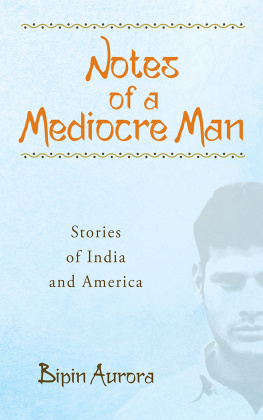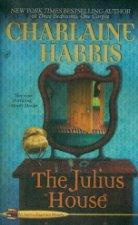AURORA
a novel
ANDRE VLTCHEK
Badak Merah Semesta
2016
AURORA
Copyright 2016 by Andre Vltchek
All rights reserved
Edited by: Tony Christini
Cover Art by: George Burchett
Cover Design by: Rossie Indira
Layout by: Rossie Indira
First e-book edition, 2018
Published by PT. Badak Merah Semesta
Jl. Madrasah Azziyadah 16, Jakarta
http://badak-merah.weebly.com
email: badak.merah.press@gmail.com
Jean-Paul Sartre , Colonialism and Neocolonialism:
You know very well that we are exploiters. You know very well that we took the gold and the metals and then the oil of the new continents and brought them back to the old mother countries. Not without excellent results: palaces, cathedrals, industrial capitals; and then whenever crisis threatened, the colonial markets were there to cushion or deflect it. Europe, stuffed with riches, granted de jure humanity to all its inhabitants: for us, a human being means accomplice, since we have all benefited from colonial exploitation. This fat and pallid continent has ended up lapsing into what Fanon rightly calls narcissism. Cocteau was irritated by Paris, the city which is always talking about itself. What else is Europe doing? Or that super-European monster, North America? What empty chatter: liberty, equality, fraternity, love, honour, country and who knows what else?
Eduardo Galeano, Open Veins of Latin America :
"You could build a silver bridge from Potos to Madrid from what was mined here and one back with the bones of those that died taking it out.
By the same author
Revolutionary Optimism, Western Nihilism
The Great October Socialist Revolution: Impact on the World and the Birth of Internationalism
Exposing Lies of the Empire
Fighting Against Western Imperialism
On Western Terrorism: From Hiroshima to Drone Warfare (with Noam Chomsky)
The World Order and Revolution! (with Christopher Black & Peter Koenig)
Western Terror: From Potosi to Baghdad
Indonesia: Archipelago of Fear
Exile (with Pramoedya Ananta Toer & Rossie Indira)
Oceania Neocolonialism, Nukes & Bones
Fiction:
Point of No Return
Nalezeny
Plays: Ghosts of Valparaiso and Conversa tions with James
Part - I
Encounters
Mozart And Brecht In Valparaiso And Introducing Hans G
A t dusk, Bertolt Brecht and Wolfgang Amadeus Mozart entered an ancient tango bar in the old Chilean port city of Valparaiso. At that hour, Cafe Cinzano remained nearly empty. A shy if ardent middle-age couple held hands at a distant table and whispered sweet words over tall glasses of foamy pisco sour. An enormous, fat orange cat stretched comfortably on the floor, certain that, as happened every day, it would feast before long on copious leftovers of fish and seafood.
Tell me about your trip to Southeast Asia. Brecht put his hand on Mozarts shoulder.
They ordered white wine and a basket of empanadas filled with prawns.
Pablo Orozco was accompanying his wife, Aurora, back to her native land. They went for a one-week visit. And I joined them. There, they met a man, a director of a major European cultural institution...
...Who turned out to be an intelligence agent?
How did you know? Mozart opened his mouth, pretending to be shocked.
Most of them are, arent they?
Many years ago he was involved in the murder of Auroras younger sister.
Tell me everything, insisted Brecht. I love her work. Aurora is one of my favorite artists, a real revolutionary. And her husband, Pablo Orozco is also one of the people I genuinely admire.
We all do, nodded Mozart. But say: do you really want to hear everything, from the beginning to the end?
Yes, please, right from the start.
But Bertolt, I warn you, it is a strange, complex and dark story.
They raised glasses to each others health.
I'm glad we've met again, Wolfgang. Last time we talked was in Caracas.
Yes, it was two years ago. And before that, in Beijing just one year earlier.
When Comrades Shostakovich and Victor Hugo joined us.
Precisely. But now, let me begin the story. I am eager to share with you what took place in that faraway and unfortunate country.
Nauseatingly sweet smoke from clove cigarettes swirled into fantastic forms. Ghostlike, the smoke filtered through the dimly visible tropical vegetation and levitated into the starless night sky. The outdoor caf in one of the countrys former capitals once again overflowed with local artists, all uniformly dressed in dark-colored T-shirts, jeans and plastic sandals, their grimy feet resting on old chair frames and worn-out cushions. Their faces, detached and mildly cynical. The few women wore clothes identical to their male companions, and they too smoked clove cigarettes. In the semi-darkness, the women were difficult to distinguish from the men. All seemed desperate to blend into the obscurity of the night.
This nation of thousands of islands and languages once proud of its diversity had descended into gray uniformity its cities and villages increasingly indistinguishable one from another. People were worn down. So many dressed in the same untidy and unattractive fashion, behaving the same way, believing in the same things, thinking alike, submitting to the same religions, to capitalism and to repressive family structures. Differences had not been tolerated for many decades. Independence was broken at an early age, considered dangerous and evil.
Mozart: Like in my old Vienna.
Brecht: Like in all parts of the world where oppressive cultures reign .
Hans G, a European cultural envoy in this far away land, sat at one of the rough and robust wooden tables in the center of the caf, his disciples surrounding him, something truly ancient and biblical in the gathering. Other men and women were gathered there for no particular reason, perhaps simply savoring the honor of being seen engaged in a sophisticated conversation with such an important man of culture.
Hans felt at home in this caf and in this ancient city. He also felt at home in the appalling, polluted and hopelessly overcrowded national capital, a few hundred kilometers away. In fact he felt at home everywhere in the enormous country cushioned by deep tropical greenery, surrounded by seas and oceans, dotted with tremendous volcanoes that had a tendency to explode at the most unexpected moments, spitting out deadly lava. To Hans, it mattered very little that most of the trees were logged out and that the seas and rivers were hopelessly polluted. Should even the volcanoes grow indignant and be determined to confront and punish humans for remorselessly devastating the entire archipelago, this would matter not at all to Hans.
As far as Hans was concerned, the country consisted of countless mysterious indigenous cultures, of peculiar subdued tropical sounds, of slow, hesitant movements and gestures of local people, and of countless masks covering the faces of both adults and children. Masks were everywhere, especially glued onto the faces of politicians and hangers-on, hiding emotions, joy and pain, truth and fabrications.
This was a country that had undergone unimaginable suffering. Memories of terror bled continuously from past to present and pooled in the houses and villages across the country.
On the isles of this archipelago at night no stories of the past were told, even inside close family circles. Eyes were averted from so much, from one another, very few questions were asked.





